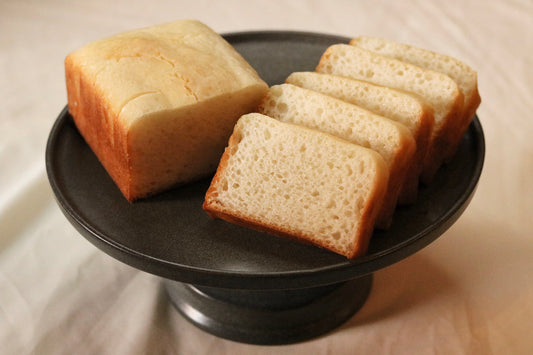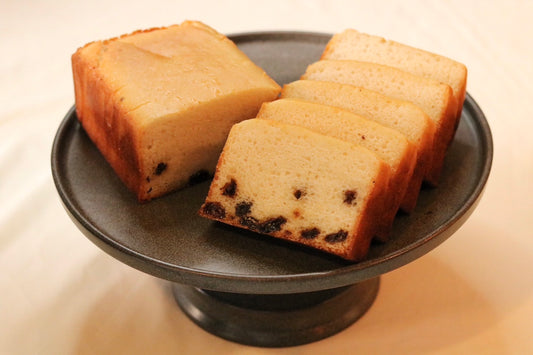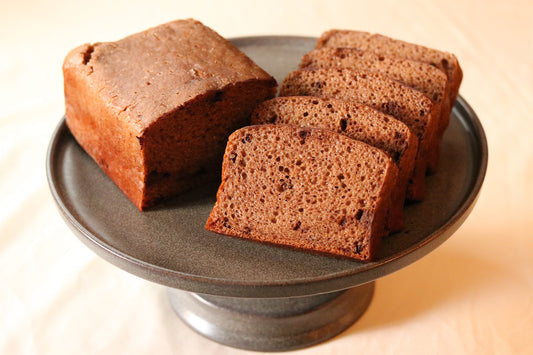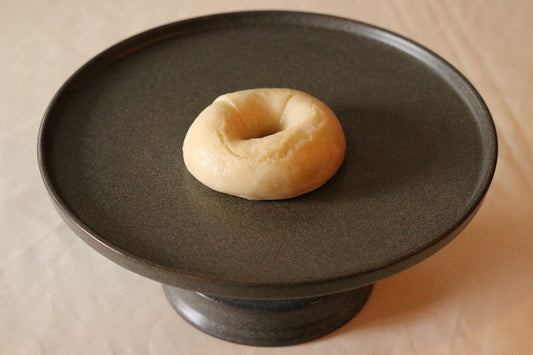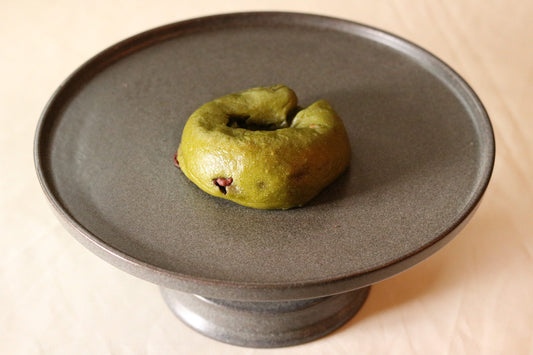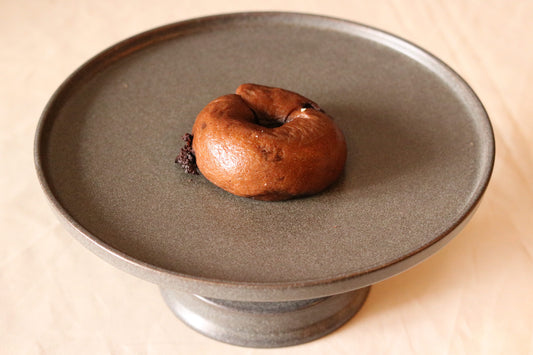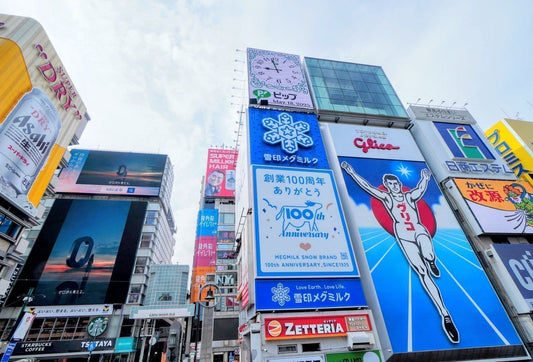Tips for a safe drinking party even if you're gluten-free

Gluten-free menu items available at izakayas
Wheat-free snacks such as edamame and chilled tofu

When it comes to popular snacks at izakayas, edamame beans and chilled tofu are undoubtedly the most popular. Fortunately, these dishes generally do not contain wheat . Edamame beans are generally simply boiled in salt water. Chilled tofu is also often made simply by chilling tofu, so it is gluten-free and can be eaten safely.
However, be careful about the ingredients on top of the chilled tofu. Depending on the restaurant, they may use seasonings or ingredients containing wheat, so be sure to check just to be sure. Also, the sauce that comes with edamame and chilled tofu often contains soy sauce. It's also a good idea to bring your own gluten-free soy sauce.
Sashimi, grilled fish, yakitori

Sashimi, grilled fish, and yakitori are staples on izakaya menus, but these are also likely to be gluten-free.
Sashimi is made by cutting fresh seafood and serving it as is, so wheat is generally not used. However, you need to be careful about the seasonings used for the sauce and marinade. Grilled fish and yakitori are also fine if they are simply grilled with salt.
However, in the case of grilled fish and yakitori, the seasonings used may contain wheat. When ordering, it is wise to check whether gluten-free options are available. Also, when cooking grilled fish or yakitori, there is a possibility that gluten may be present on the grill or stove, causing contamination. People with gluten sensitivities should take this into consideration when ordering.
Rice balls, salad, miso soup

Rice balls, salads, and miso soup are typical Japanese dishes. They are popular at izakayas, but can they be eaten gluten-free? First of all, rice balls can be made gluten-free depending on the ingredients.
In particular, salmon, plum, and salted rice balls are almost always wheat-free. Even if they're not on the menu, it's worth requesting them. There's also no need to worry about salads, as long as they're simple and made with only vegetables. However, many dressings contain additives, including wheat, so be sure to check.
Bringing your own original gluten-free dressing is also an option. Miso soup is actually a menu item with surprisingly many pitfalls. Because wheat is used in the broth and gluten is included in the ingredients, it cannot be said to be gluten-free in general. It is best to check specifically with the restaurant staff before ordering.
Gluten-free beer and alcohol

When you think of izakayas, you think of alcohol. The main attraction is beer, and gluten-free options are actually on the rise. Regular beer is made from malt, so it contains a lot of gluten.
However, in recent years, major manufacturers have begun to release gluten-free beer. In addition, alcoholic beverages other than beer, such as sake, shochu, and wine, tend to be gluten-free. Sake, which is made from rice, is particularly gluten-free.
However, wheat and barley are sometimes used in the brewing process, so you should be careful. It's best to check with the manufacturer or ask the bar staff beforehand. Choosing the right alcohol is also an essential point when enjoying a drinking party. It's a good idea to develop an eye for choosing gluten-free options.
Things to keep in mind when going to an izakaya
Check the cooking method and seasonings

When ordering gluten-free food at an izakaya, the most important thing to do is check the cooking method and seasonings. Even if a dish appears to be wheat-free at first glance, there may be pitfalls lurking in unexpected places, such as salad dressing, grilled fish sauce, and tempura batter.
Many of these dishes contain seasonings and ingredients that contain wheat. When ordering, be sure to ask the staff if they can accommodate gluten-free options. It's also a good idea to ask to be sure that no wheat flour is used in the cooking process.
Even if you look at the ingredients list on the menu, you often won't know the details. The key to safely enjoying gluten-free menu items is to not hesitate to ask the staff.
Beware of contamination risks
Another thing to be aware of when eating gluten-free is the risk of contamination. This refers to the unintentional contamination of gluten from ingredients that contain gluten. For example, the following cases can occur:
- Using the same pot or spatula used to cook flour-based dishes for other dishes
- Store gluten-containing and gluten-free foods in the same containers
- Cook gluten-free food in a flour-filled kitchen
In these situations, even if a restaurant is officially gluten-free, it may actually contain trace amounts of gluten. For people who are sensitive to gluten, even small amounts can cause illness. Izakaya kitchens are generally small and crowded.
It is entirely possible that consideration for contamination has not been given enough attention. When ordering, it is important to check whether measures to prevent contamination have been taken. In some cases, it may be a good idea to ask to use separate cooking utensils for dishes containing gluten.
Inform the staff that you are gluten-free

In order to eat gluten-free menu items with peace of mind, it is important to clearly explain the situation to the staff. However, there are many people who don't even know the word "gluten." Therefore, it is recommended to explain as follows.
"I have a wheat allergy, so I'd like something that doesn't contain wheat flour or ingredients containing gluten." Saying "wheat allergy" is easier to understand than "gluten." Wheat allergies have been increasingly featured in the media recently, so there should be some awareness of the issue. It's also effective to ask "Can you provide gluten-free food?" not only when ordering, but also when entering the restaurant.
If you check in advance whether they can accommodate your request, you can choose your menu with peace of mind. We also recommend asking for a list of gluten-free options. If they explain it to you verbally, you might miss it, but if they list it clearly, you'll be able to order without hesitation. Communication with the staff is essential to enjoying a gluten-free meal out. Don't be shy, but make sure to clearly communicate your requests.
Please consult in advance about bringing in food or changing the menu

It's not uncommon for izakayas to have few gluten-free options on their regular menus. In such cases, one option is to bring your own gluten-free ingredients and seasonings. However, it's important to get permission from the establishment in advance.
Call or email to ask specific questions, such as "Can I bring gluten-free soy sauce?" or "Can I bring in rice flour bread?" Some restaurants will happily agree, but others may refuse due to hygiene concerns.
It would be a hassle if you were to be turned down on the day, so be sure to check in advance. It's also worth asking about changes to the menu. If there are any dishes that can be made gluten-free, they may be able to change the ingredients.
For example, try asking for flexibility to the extent possible, such as "Could you please remove the batter from the fried chicken?" or "Can I change the pasta to rice?" However, not all requests will be accommodated. Making small changes may be difficult, especially when they are busy with orders. It is good etiquette to only communicate your wishes, while taking into consideration the restaurant's circumstances. Depending on the time and situation, it may be necessary to choose a restaurant that is suitable for gluten-free people.
How to promote gluten-free eating at company drinking parties
Consult with your supervisor or colleagues beforehand

It may take a lot of courage to announce your gluten-free diet at a company drinking party. Some people may feel that they don't want to be treated differently from others, or that it will affect their work. However, in order to protect your health, it is important to speak up without hesitation.
The first person you should talk to is your boss or a colleague you're close to. "Actually, I'm allergic to wheat," or "I'm on a gluten-free diet, so there are some things I'd like you to be careful about when it comes to the menu at drinking parties." Try confiding in someone close to you first.
If they are understanding, they will be a great ally. You can also have them help you decide whether or not to attend a drinking party. Consulting in advance may lead to unexpected support. If you can gain the understanding of your boss and colleagues, it will be the first step in spreading awareness of gluten-free diets.
Ask the organizer of the drinking party to be considerate
Company drinking parties are often run by a party organizer. The organizer's job is tough, but it's also an important role to pay attention to each and every participant.
If you would like to go gluten-free, we recommend that you don't hesitate to ask the organizer for advice. Try making specific requests such as, "I would like to participate in a gluten-free event, but could you please check the menu?" or "I have a wheat allergy, so I would like to avoid gluten. Is this possible?"
Depending on the organizer, they may not have a sufficient understanding of gluten-free options. In that case, it's important to carefully explain the considerations you need. It will be easier for them to accommodate if you provide specific details such as, "It would be helpful if you could prepare gluten-free dishes," or "Could you also use wheat-free seasonings?"
The role of the party organizer is to ensure that all participants have a good time, so by asking without hesitation, you can create an environment where gluten-free people can participate with peace of mind.
Explain your situation in a natural way

Explain it lightly so that it doesn't seem like a serious reason
When explaining that you're gluten-free, you want to be careful not to make people think that you have a serious illness. If you take it too seriously, you risk making those around you feel uneasy. Try to use light-hearted phrases, such as, "I have a minor allergy, but I don't like wheat," or "I'm avoiding gluten because it's popular these days. "
If it is perceived as a serious illness, it could actually be a burden to the person. However, if you explain it too lightly, there is a chance that they will not take it seriously. The key is to add a reason such as "Because gluten makes me sick."
It might be a good idea to casually mention it in the flow of conversation. "I had a terrible experience the other day when I ate gluten," or "Ever since I discovered I have a wheat allergy, it's been difficult for me to eat out," and it would be ideal if you could explain the situation in a natural way. The key to gaining understanding from those around you is to explain it as just your constitution.
Seek understanding, but be careful not to make them feel too uncomfortable
While asking for understanding of gluten-free diets, it's also important to be courteous and not make those around you feel overly uncomfortable. There's no point in making the atmosphere awkward because of you. Don't forget to add considerate words such as, "I hope you can accommodate to the best of your ability," or "It's okay if you don't go out of your way to prepare something." It's essential to always ask for cooperation.
In some cases, it's important to be flexible and ask, "Can I bring my own food?" or "I might have to leave later." By proposing your own solution, you can reduce the burden on those around you. Telling others you're gluten-free is not a selfish request in itself. However, being cooperative is essential to maintaining good relationships. Seek understanding, but don't forget to be grateful. It's important to show your gratitude to those around you through your words and actions.
The benefits of being open

Gaining understanding and cooperation from those around you
For those who are practicing gluten-free, there are great benefits to being open about it to those around you. Above all, it's reassuring to have the understanding and support of those around you . Some people may be confused at first, asking, "What is gluten-free?" and "Why is wheat bad?"
However, if you explain your situation properly, most people will be understanding. They will naturally start to be considerate and say things like, "Oh, I see," or "Shall we prepare a gluten-free menu for the next drinking party?" Being open about your situation will also encourage others to be considerate .
At the mealtime, they can casually let you know, "This doesn't contain wheat flour, so it's fine," or "I asked them to make the condiments gluten-free." Rather than carrying the burden alone, getting help from those around you will reduce the burden. Letting others know your situation is also beneficial in deepening relationships.
Dietary restrictions can be a difficult topic to explain, but by increasing the number of people who understand, more people will be able to relate to you with peace of mind. It may take courage to tell those around you, but the benefits of gaining understanding and support are immeasurable. It's definitely worth taking the first step.
You can exchange information with people in similar situations

For those who are practicing gluten-free, meeting others in the same situation is a reassuring experience. By sharing each other's experiences, you may find hints to solve your worries. "I'm also struggling with gluten-free," "I make these kinds of efforts when eating out," and other information exchanges are the most encouraging thing.
Interacting with fellow gluten-free people is a surefire way to ease feelings of loneliness. Talking to someone in the same situation can help ease the anxiety you tend to carry alone. And when we say exchanging information, we don't just mean diet. You might even gain know-how on all aspects of life, such as gluten-free daily products and recommended medical institutions.
Practical advice such as "I use this kind of substitute food" or "This restaurant has a wide range of gluten-free options" is more valuable than anything else. The wisdom you discover through trial and error will surely help others with the same concerns. By being open about your gluten-free diet, you can expand your network of fellow gluten-free people.
By exchanging information through social media, you can find useful tips for your daily life. Having someone to talk to when you're in trouble is an irreplaceable source of emotional support. Meeting people in similar situations is sure to enrich your gluten-free life.
Enjoy a drinking party without worrying about meals

For people who practice gluten-free diets, eating out or going out for drinks can be a major source of worry. "I wonder if there's anything on the menu I can eat?" " It's a pain to have to explain about gluten." Worries about the food tend to take priority . Even a fun occasion can be ruined if food is constantly on your mind.
However, if you let those around you know that you're gluten-free, you won't have to worry about that. You'll be able to participate in the drinking party with peace of mind. The organizer will be more likely to be considerate, saying things like, "I heard that Mr./Ms. XX is gluten-free. There are safe menu items at the izakaya," or "I asked in advance. They said they could make the course menu gluten-free."
With friendly consideration, you can enjoy your drinking party without worrying about food. Another great thing is that if they can help you decide on a menu, your options will expand. Even if they're not familiar with gluten-free options, they'll likely be willing to help if they know the situation. It's great to have an environment where you can feel free to make requests like, "Which dishes are gluten-free?" or "Can you check the seasonings, please?"
With less worry about food, you'll be able to focus more on conversation and interaction. Being open about your gluten-free diet won't be a barrier to attending drinking parties. You won't have to worry about wanting to attend, but worrying about whether there's anything you can eat. Being able to enjoy a drinking party without worrying about food is the greatest joy for gluten-free people. Being open about it will help you enjoy that joy.
summary

There are great benefits to being open about your gluten-free diet with those around you. Gaining understanding and support will reduce the burden of dietary restrictions and deepen your relationships. Also, being able to exchange information with people in the same situation is an irreplaceable source of encouragement. By sharing each other's experiences, you may find clues to help resolve your concerns.
The wisdom to enrich your gluten-free life comes from interacting with friends. And the best part is being able to enjoy a drinking party without worrying about what to eat. In an environment where gluten-free isn't a barrier, you'll be able to focus more on conversation and interaction.
That being said, being open about your diet may be a courageous step. But when you consider the benefits you can gain from it, it's well worth it. Going gluten-free doesn't have to be something you have to face alone. The most important thing is to get the understanding and support of those around you and practice it in a fun and positive way.
Gluten-free rice flour menus are available for purchase online at "Komeko's Palette"

Komeko's Palette is an online shopping site recommended for those who want to eat a healthy, gluten-free diet. They offer products that are made primarily from rice flour and do not contain any wheat. Palette's three main features are that they are "completely additive-free," "wheat-free," and "refined sugar-free."
We do not use any food additives and value the natural flavor and nutrition of the ingredients. Instead of wheat, we use nutritious rice flour and other natural ingredients that are gentle on the body. Our products have a moist texture and are carefully crafted to bring out the flavor of the ingredients, making them popular as "delicious even without wheat."
In addition, instead of refined sugar, they use natural sweeteners such as beet sugar and cane sugar. Not only is it sweet, but it is also healthy and has a mellow, deep flavor. Palette was born from the desire to allow everyone, whether they are gluten-sensitive or not, to enjoy the same delicious taste at the same table.
We help brighten up your dining table with safe, secure, and delicious products. If you're having trouble choosing gluten-free foods, why not check out Komeko's Palette? You're sure to find something you like.
